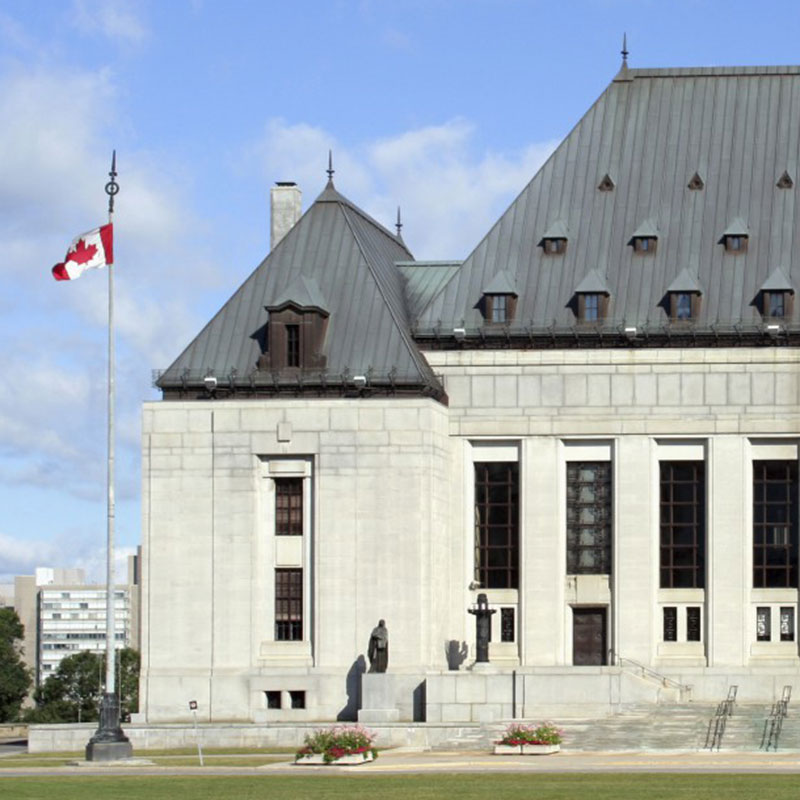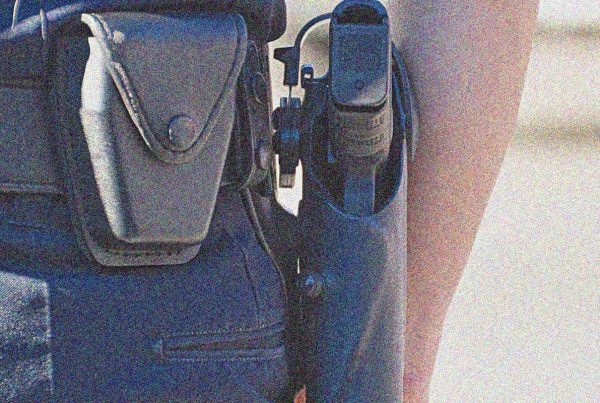Mr. Bird doing too much bird is the issue before the Supreme Court of Canada in R. v. Bird. ‘Doing bird’ is slang for doing prison time, and Mr. Dean Spencer Bird is arguing that he’s done his time, so why is he still being held in prison?
Indeed, a ‘Liberal’ government notwithstanding, the feds are making things harder and harder for people to reintegrate into society once they’ve completed a prison term. Getting a job is almost impossible with a criminal record, which in some provinces any employer can access even if the record is totally irrelevant to the job. (How is a drinking and driving conviction relevant to working at Home Depot as a janitor?). There is next to no rehabilitation offered while people are in the bucket, and the only true reintegration services out there are not provided by the feds, but rather by some excellent charities that do all they can but wish they could do more. For those subject to parole after their release, the conditions can be so onerous that they are set up to fail, sending them right back into the criminal justice system.
But R. v. Bird takes this populist obsession with punishment to a whole new level. This week, the Supreme Court of Canada is set to decide whether a man should be imprisoned for failing to follow an apparently unconstitutional order. The Court is dealing with a question that is fundamental to any constitutional democracy dedicated to the rule of law: if the state has violated an individual’s Charter rights and freedoms, must the individual receive an effective remedy?
There is little dispute as to the facts of this case. After successfully completing his term of imprisonment, Mr. Bird was subject to a ‘long-term supervision order.’ A supervision order is a wolf in sheep’s clothing, pretending to be about rehab of an individual and reintegration into the community after they have completed the custodial portion of their sentence. But there is little to none of that actually offered to the ex-con. Instead, supervision orders are all about keeping him under the thumb of the state, in the name of protecting the public from the risk of re-offence. You thought that once you did the crime, you had to do the time, and your debt to society was paid off? Think again.
In this case, the Parole Board and Correctional Service Canada ordered Mr. Bird, as part of his post-imprisonment supervision order, to live at a Community Correctional Centre, i.e., a minimum-security correctional institution operated by Correctional Service Canada. In other words, the hawks at Corrections decided that the best way to reintegrate Mr. Bird into society post-incarceration was to … incarcerate him.
After leaving the Centre without permission (so much for freedom), Mr. Bird was charged with the criminal offence of breaching the condition that he reside at the corrections institution.
Mr. Bird has a relatively straightforward constitutional argument against the order detaining him at a Community Correctional Centre. Under the relevant statute, the Centre would appear to be a penitentiary designed for “inmates,” such as individuals on day parole or those still serving their sentence. As a detention centre intended for “inmates,” it cannot further a key goal of long term supervision orders: community integration. To repeat the point made above: reintegration into free society post-incarceration cannot be achieved through further incarceration.
Mr. Bird had undeniably completed his prison sentence. So if the Parole Board and Correctional Service Canada never had authority to order Mr. Bird to reside at the Centre, it is a detention unauthorized by law — which is to say an arbitrary detention that violates Section 9 of the Charter.
The problem is that the Supreme Court may not even consider his constitutional argument. Under what is known as the “doctrine of collateral attack,” the Court may decline to consider Mr. Bird’s arguments on the grounds that the initial order to reside at a Community Correctional Centre cannot now be challenged in proceedings regarding a breach of that order. The upshot? An unconstitutional order magically becomes constitutional if the defendant delayed in challenging the unconstitutional order in the first place — even if it results in an individual going to prison for disobeying an unconstitutional order (which is to say no real legal order at all).
While there already exists a complicated legal test for avoiding this result, the current test does not consider an individual’s Charter rights and freedoms when deciding whether to allow a Charter argument to proceed. The shocking possibility that one could face imprisonment on the basis of an unexamined and potentially unconstitutional order is why we at the CCLA intervened at the Supreme Court of Canada. We argued that any attempt to limit Mr. Bird’s legal right to challenge the conditions that were placed on him by the Parole Board must be informed by Charter considerations.
Specifically, we argued that a court should consider the extent of the alleged impact on the Charter rights of the individual wishing to challenge the order, such as the severity of sentencing an individual to long-term imprisonment on the basis of a potentially invalid order; the utility of existing review mechanisms for remedying or preventing the alleged Charter breach, including the speed at which the individual could have challenged the order prior to breaching it; and the actual ability of an individual to challenge the order or make use of existing review mechanisms prior to the breach, including socioeconomic concerns regarding the accused’s ability to access justice. It is a mistake, we argued, to think that individuals will always have the resources or wherewithal to challenge legal orders before their legal consequences have become fully realized.
Whatever the Court decides, R. v. Bird is likely to serve as a leading decision on a bedrock Charter principle: whether a right without a remedy can be considered a right at all.
Rob De Luca
Director of Democracy and the Rule of Law Program
rdeluca@ccla.org
Michael Bryant
Executive Director and General Counsel
mbryant@ccla.org
About the Canadian Civil Liberties Association
The CCLA is an independent, non-profit organization with supporters from across the country. Founded in 1964, the CCLA is a national human rights organization committed to defending the rights, dignity, safety, and freedoms of all people in Canada.
For the Media
For further comments, please contact us at media@ccla.org.





